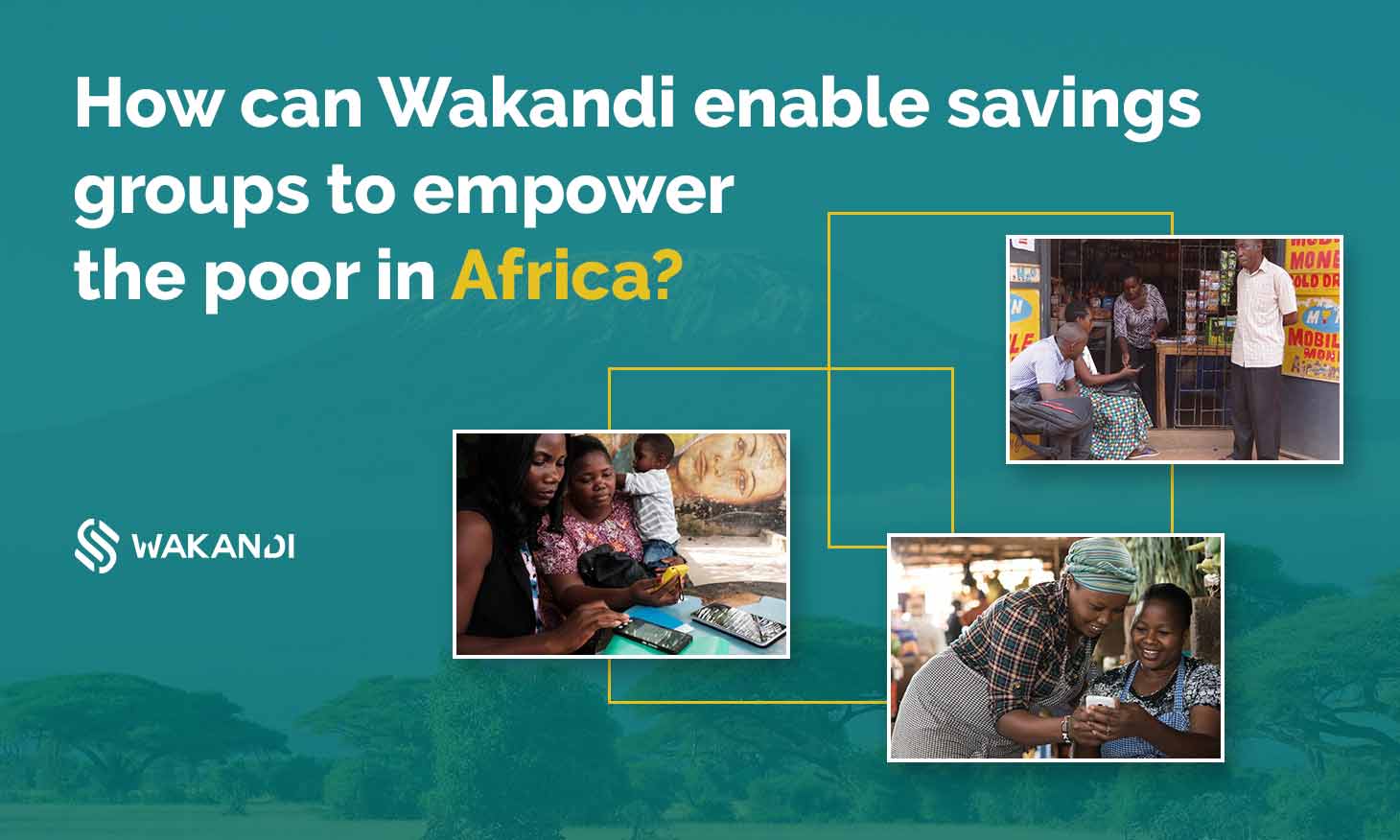How can CAMS enable savings groups to empower the poor in Africa?

MWASHITA SACCOS, based in Dodoma (Tanzania), was established in 1997 to mobilize savings, receive contributions and provide affordable credit facilities for communities, especially the poor. Thousands of people are associated with them to avail financial services. Like MWASHITA, many other SACCOs in Tanzania offer loans to those who don’t have access to banks. They act as the vehicle that drives access to financial services, especially for smallholding farmers, low-income households and people below the poverty line. They eliminate the formal process of availing loans and offer a convenient financial experience to their members.
People below the poverty line prefer to bank (mainly keep savings) with local savings groups and microfinance institutes (MFIs). These groups play a critical role in uplifting the poor by providing an affordable way to maintain savings and avail loans. Wakandi aims to support these groups by providing a Credit Association Management System (CAMS). CAMS can help to improve the speed, security and effectiveness of their services.
Empowering poor in Africa with CAMS
CAMS is a simple yet intuitive application that lets savings groups manage savings and loans effectively. The solution enables digital operations over manual processes when it comes to tracking funds, maintaining finances, letting members know when and how to contribute, adding or removing members, and much more. Every transaction is, thus, saved automatically. Consequently, helping these groups to maintain records for administrative and regulatory purposes. With that, these groups will be able to focus more on helping the poor instead of administrative tasks.
Read more about CAMS here.
Our solution can also help financial groups to reduce their cost of operations by replacing manual tasks with technology. It can then enable groups to offer more affordable loans and savings facilities to their members. It will not only open doors for better services for the poor but will also generate better growth opportunities.
Furthermore, CAMS can open avenues for better financial inclusion by creating a hub of transactional data. This hub of financial data or transaction records can be easily shared with banks and financial institutions to help them reach more communities and the poor in Africa. Banks will be able to access the transaction data of every user and evaluate their creditworthiness. When a user, without any banking history, will reach a bank for a loan, the bank will already have their data and will be able to offer an appropriate loan to them.
Banks would also be able to collaborate with SACCOs, MFIs, and other informal financial groups (IFGs) to innovate and offer better financial services. It could be a win-win situation for both banks and savings groups. Banks will gain access to the vast transactional data and savings groups will become more advanced and effective.
Conclusion
The need to improve access to affordable financial services in Africa especially for the poor and low-income households has become more critical than ever. A whopping 370 million people still remain unbanked in Africa. The number is even higher in rural areas. Informal financial groups offer vital access to credit and savings facilities to millions of households. CAMS could be the solution that redefines how the financial groups operate and empower the poor.
Wakandi is already moving ahead with collaborations with banks and IFGs to launch our solution in Africa. We will first launch our solution in Tanzania and South Africa. You can read more about our work on our blog. You can subscribe to our newsletter by filling the form below to get the latest updates from us.

Comments